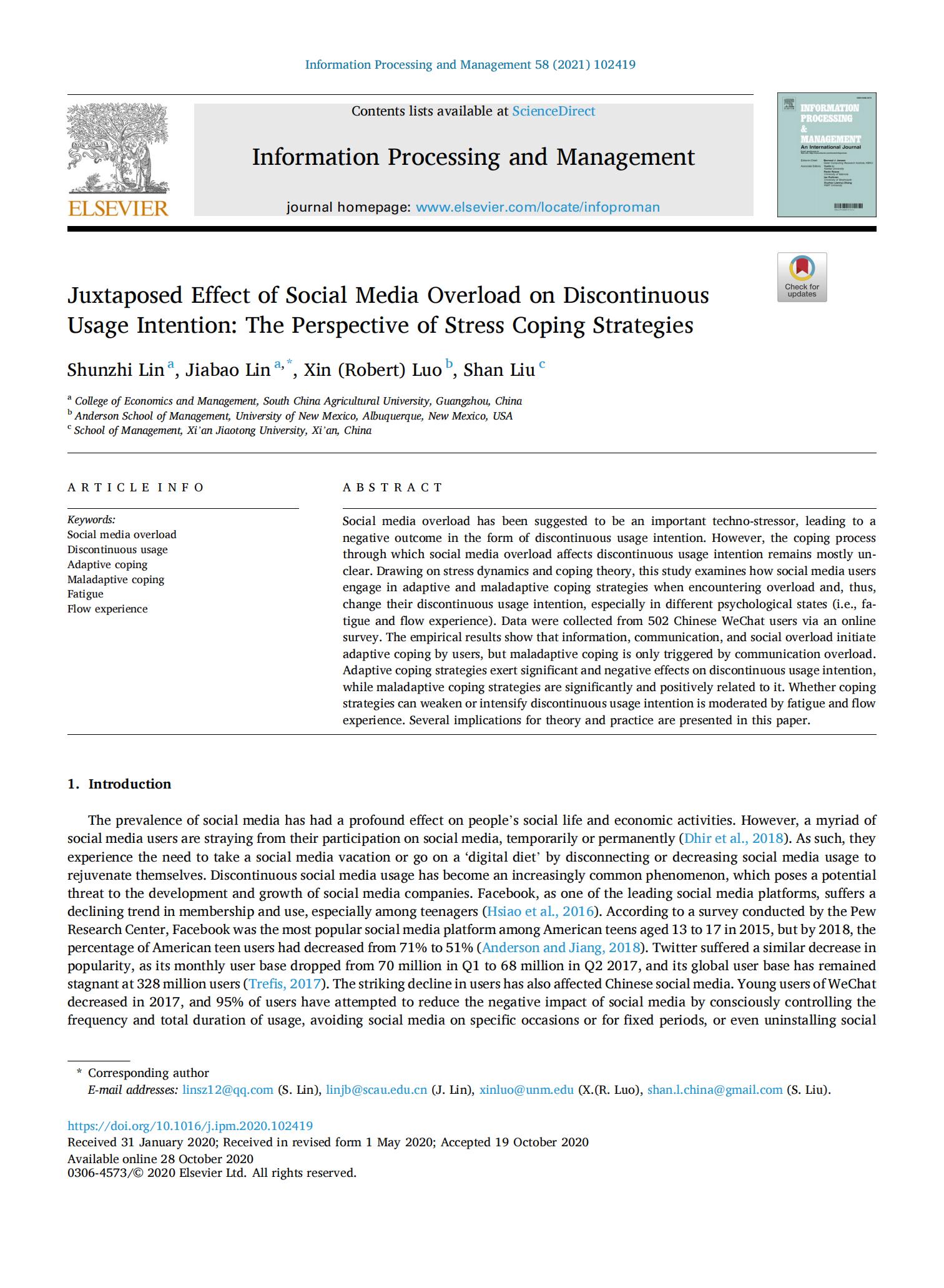作者: Shunzhi Lin, Jiabao Lin*(林家宝), Xin (Robert) Luo, Shan Liu
期刊: Information Processing and Management
出版时间: JAN 2021 卷:58 期:1
论文地址: https://www.sciencedirect.com/science/article/pii/S0306457320309146
摘 要
Social media overload has been suggested to be an important techno-stressor, leading to a negative outcome in the form of discontinuous usage intention. However, the coping process through which social media overload affects discontinuous usage intention remains mostly unclear. Drawing on stress dynamics and coping theory, this study examines how social media users engage in adaptive and maladaptive coping strategies when encountering overload and, thus, change their discontinuous usage intention, especially in different psychological states (i.e., fatigue and flow experience). Data were collected from 502 Chinese WeChat users via an online survey. The empirical results show that information, communication, and social overload initiate adaptive coping by users, but maladaptive coping is only triggered by communication overload. Adaptive coping strategies exert significant and negative effects on discontinuous usage intention, while maladaptive coping strategies are significantly and positively related to it. Whether coping strategies can weaken or intensify discontinuous usage intention is moderated by fatigue and flow experience. Several implications for theory and practice are presented in this paper.

责任编辑:董晓玲
审 定:黄 松